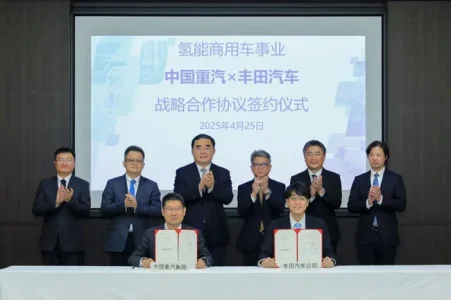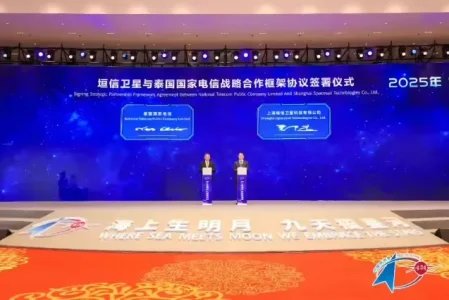Trump Eases Tariffs on the Auto Industry; This Impact on Mexico
This measure benefits automotive brands that import auto parts
By
Omar Tinoco Morales
Apr 29, 2025 6:02 p.m. E
U.S. President Donald Trump arrives at Selfridge Air National Guard Base in Harrison Township, Michigan, U.S., April 29, 2025. REUTERS/Evelyn Hockstein
U.S. President Donald Trump signed a new executive order on Tuesday, April 29, to soften the impact of tariffs on automakers.
What is birth tourism? The new reason why the U.S. will withdraw visas for Mexicans?
You may be interested in:
What is birth tourism? The new reason why the U.S. will withdraw visas for Mexicans?
This measure, through deductions, benefits automakers that import auto parts to the US. Mexico is one of the main export partners for auto parts.
Until now, automotive components from Canada and Mexico are exempt from tariffs if they comply with USMCA regulations.
Commercial vehicle seized that was intended to carry more than $1 million worth of cocaine from Mexico to the US
You may be interested in:
Commercial vehicle seized that was intended to carry more than $1 million worth of cocaine from Mexico to the US
At this point, it should be noted that auto parts that comply with the free trade agreement will not pay tariffs, making the Mexican industry more competitive compared to other countries.
Vehicle manufacturers in the United States will be able to benefit from significant deductions in tariffs applied to imported parts, according to Trump's new provisions.
General Motors has two plants
General Motors has two plants in Coahuila and was one of the companies affected by the tariffs on Mexico. REUTERS/Daniel Becerril/File Photo
During the first year, they will have the option of deducting 15% from the recommended retail price of cars produced and sold in the country, while in the second year this deduction will be 10%.
This will apply to tariffs that reach 25% for certain components from abroad.
The automotive industry breathes life into the economy
The US president, who is celebrating his first 100 days in office, opted to soften the impact of the previously announced tariffs of up to 25% on imported parts and vehicles.
As part of a new strategy, the government approved a credit system of up to 15% of the value of vehicles assembled in the country, allowing this credit to be used to offset the costs of foreign parts.
Trump spoke about the reduction of tariffs on dozens of countries: "People were getting a little scared."
According to Trump, this will give manufacturers time to adjust their supply chains and gradually shift production to the United States.
In remarks before traveling to Michigan, the president described the measure as an attempt to mitigate the immediate complications of his policy.
"We didn't want to punish companies if they couldn't get the necessary parts. This will give them room to adapt," he said.
Michigan, considered the heart of the US auto industry, was the chosen setting to defend a policy that has received both criticism and praise.
This Tuesday, General Motors (GM) decided to withdraw its annual forecast, despite reporting solid sales and profit performance for the last quarter. In an unexpected turn of events, the company also postponed a conference call with analysts, pending further details on the changes implemented by the White House.
Esta medida beneficia a las marcas automotrices que importan piezas de automóviles

www.infobae.com
BYD Mexico Plant in Limbo as ‘China Fears EV Tech Leaking to US’
March 19, 2025
The future of Chinese auto giant BYD’s proposed plant in Mexico remains uncertain amid concerns in Beijing about its tech secrets

www.asiafinancial.com
Deputies call for increased tariffs on Chinese cars
The Chamber of Deputies proposed to the Ministry of Economy that it consider establishing a 25% tariff (currently between 15% and 20%) on imports of finished vehicles originating in China, lithium batteries, and high-value parts from that nation.
La Cámara de Diputados planteó a la Secretaría de Economía se analice establecer un arancel del 25% (actualmente es de entre 15% y 20%) a las importaciones

www.eleconomista.com.mx
The United States government is finding support in Mexico in its trade war against China, and the administration of President
Claudia Sheinbaum proposed to Washington to equalize tariffs on products from the Asian giant as a bloc, with the three North American countries as a bloc, says the Secretary of the United States Treasury, Scott Bessen.
Bloomberg reported, citing sources close to the tariff enforcement system, that Mexico's tariffs on China would focus on automobiles, auto parts, and finished products originating in the Asian giant.

www.cronica.com.mx












